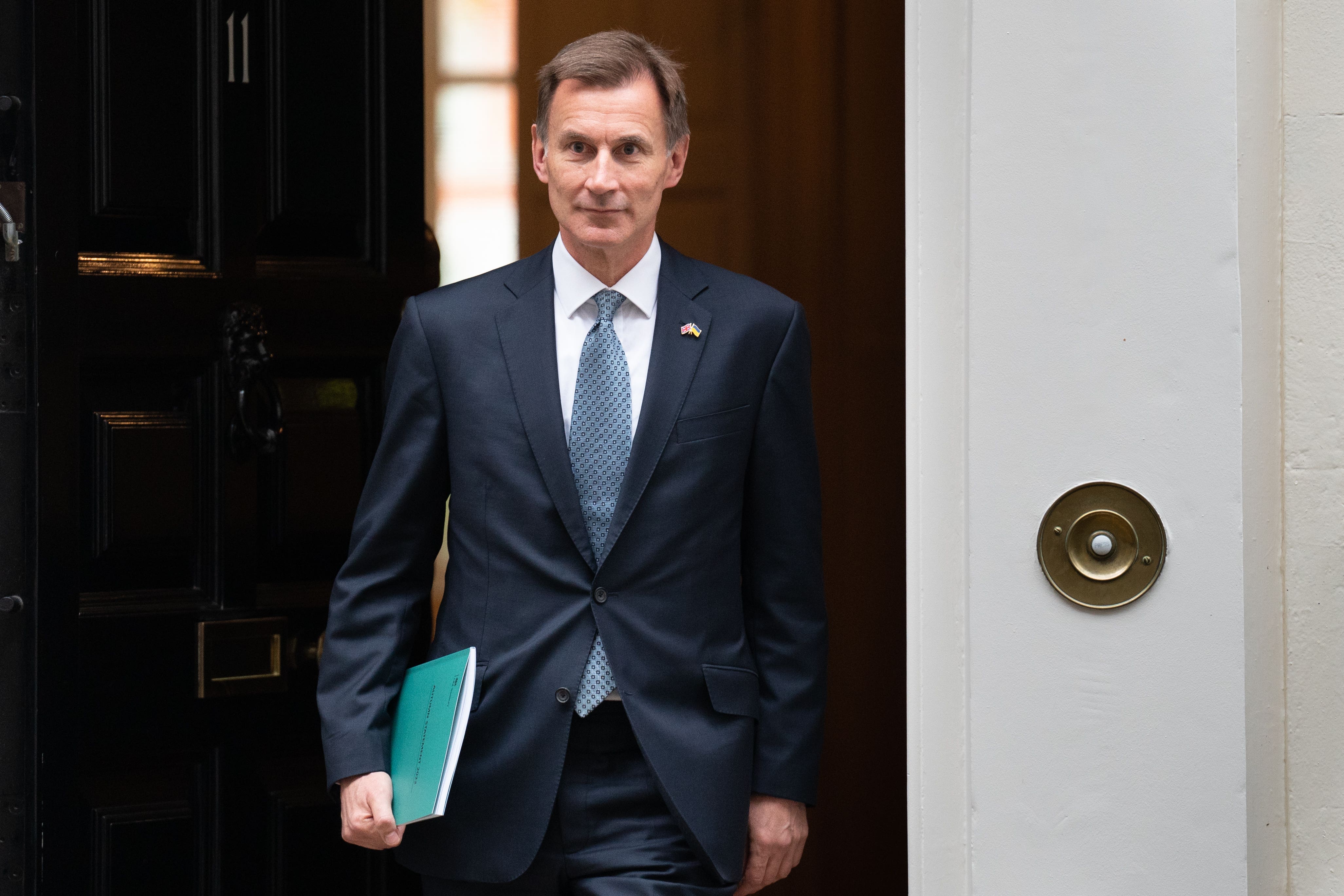Jeremy Hunt has some bad news for businesses over energy bills – so what now?
Bitter medicine could be sweetened by the launch of a review into a failing market, argues James Moore


Britain’s business community is facing quite the new year hangover.
While Rishi Sunak was attempting to get on the front foot with a big new year speech, his chancellor – Jeremy Hunt – was setting business groups back on their heels with some very bad news.
The £18bn business Energy Bill Relief Scheme, which is coming to an end in March, is to be replaced with something much less generous.
The current scheme is, Hunt said, “unsustainably expensive”. If the energy markets start getting more volatile again it could end up costing the taxpayer two or three times as much.
Which is quite true. But what Hunt did not say in what the Treasury described as a “readout” from the meeting is that while the “moron premium” demanded by lenders after Liz Truss started chucking her economic hand grenades has declined, the government is still on a short lead. It has limited room for manoeuvre as a result. The markets remain wary. Given what Tory MPs have been saying and doing lately, that’s hardly surprising. Some of them still seem to think that the answer to what ails the country is another dose of Boris Johnson. Omicron 2.0 or BoZo 2.0. Which is worse for the economy? Tricky one, that.
To be fair, this was always coming. Householders have already been told they’re getting less help. There’s also the fact that it doesn’t look terribly good to be subsidising the energy bills of big, profitable businesses when nurses are going hungry as a result of poor pay.
Of course, those big profitable businesses will be able to cope whatever happens. The current situation is far more troubling for the legion of smaller firms who have been relying upon the relief scheme for survival.
Their numbers are considerable. More than a third of firms have told the British Chambers of Commerce (BCC) – which was at the meeting along with the Confederation of British Industry (CBI), UK Hospitality and the Federation of Small Businesses – that they are finding it difficult to pay their energy bills even while in receipt of government support.
The spectre of a cliff edge looms large. Hunt says he is mindful of this. So while there will be less support available, there will be something. How much? That’s what we don’t know. If previous government form is anything to go by, we’ll probably find out on Sunday – ahead of an announcement to parliament on Monday. Speaker Lindsay Hoyle will ineffectually scold Hunt before he stands up. Hunt will pretend to be contrite. You know the drill.
For what it’s worth, I suspect that recent reports of support being halved can be taken with a pinch of salt. This has the whiff of yet another softening up exercise so that when Hunt says he’s cutting support by a third, with maybe a bit extra for pubs and one or two other favoured sectors, everyone will say, well “Phew! It could have been a lot worse, eh? And at least we finally know what’s coming”.
One of the major failings of government with respect to business has been the lack of anything resembling consistency when it comes to policymaking. It makes planning extraordinarily difficult. It acts as a brake against investment, something Britain badly needs more of.
The message from the party of business still often seems to be “who cares?” – but come over to Downing Street for some tea and insincere sympathy at a sit down.
This decision could and should have been taken and communicated weeks ago. The fact that it is only landing on Monday is shameful.
If the government is serious about trying to improve relations with business – and it should be – then one way to sweeten the pill would be to promise a review of the business energy market. The energy crisis has clearly exposed problems with it, especially when it comes to small firms which lack the bargaining power and clout of their larger peers.
The BCC says it would like to see Ofgem’s powers extended to help with “protecting firms’ access to energy deals through greater regulation”. That would be worthy of investigation, although given the energy watchdog’s ham-fisted approach to regulating consumer energy markets, it’s not entirely clear how much good this would do in reality.






Join our commenting forum
Join thought-provoking conversations, follow other Independent readers and see their replies
Comments